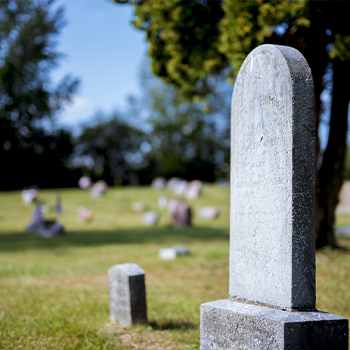The American justice system sometimes may take its time. One question often arises - what happens when the lawsuit plaintiff dies during the lawsuit process?
Here at Schmidt & Clark, LLP, we’ve been helping individuals and families who have been wronged since 1992. We’ve taken on some of the most powerful corporations in America.
Today, we will explain everything you should know about what happens with the case if the plaintiff dies.
Summary of the Key Findings
- Close family members or other eligible survivors can be appointed as personal representatives if a person dies in a lawsuit.
- The representative can continue the lawsuit in appellate courts and get suffering damages or punitive damages.
- What damages the descendants may get depends on whether the lawsuit is survival action or wrongful death.
What Happens When a Plaintiff Dies?

When a plaintiff is no longer alive, the legal claim goes to the plaintiff’s heirs.
The civil court can stay the matter — put the lawsuit on hold until the probate court appoints an estate representative.
This means the claim becomes an asset of the estate and the personal representative acts on behalf of the deceased plaintiff [1].
If the injured person dies during a personal injury lawsuit, they are still entitled to compensation. However, the following changes may occur:
- Changing lawsuit from an injured person to a wrongful death case if the person dies from injuries sustained.
- Adjusting the damages.
Also, there are certain limitations, such as:
- A new cause of action can’t be created. Only the existing case can be continued.
- In case of personal injury, the plaintiff is entitled to compensatory damages up to the time of death.
- If the deceased person died for reasons other than personal injury, the damages awarded stop at the time of death.
Note: A criminal litigation dies when the plaintiff is deceased.
Appointment of a Decedent’s Personal Representative

“Beneficiary of the decedent’s estate or other successor in interest who succeeds to a cause of action or to a particular item of property that is the subject of a cause of action [2].”
Also, a personal representative may continue the lawsuit.
There are two situations of appointing a personal representative:
- A deceased person left a valid will, where they nominated their representative. If this person is willing to serve, the probate court appoints them as a personal representative.
- A deceased person didn’t leave a valid will. In this case, a person interested in being the representative can petition the court to get the appointment. In case they are successful, they will be the successor in legal matters.
A personal representative functions as a substitute plaintiff and has the right to settle or not settle the case. All decisions they make should be in the best interest of the plaintiff’s estate.
Related Article: How to File a Partition Lawsuit?
Survival Claim Vs. Wrongful Death
Both a survival action and wrongful death claim can be filed after the plaintiff becomes deceased. However, there are some differences. If the plaintiff died of causes non-related to the underlying personal injury case, there’s cause for survival action.
In a survival action, someone else can continue the pending lawsuit in place of the plaintiff and recover the damages. In this case, the damages and legal fees potentially awarded are the same as if the plaintiff was still alive.
All of the damages incurred before death are recoverable by the estate on the decedent’s behalf. But, the estate can’t get an award for general damages.
A wrongful death suit is a claim by the decedent’s heirs — the decedent's surviving spouse, children, or other heirs. They sue for the losses they’ve personally experienced because of the decedent's death. If the deceased is a minor child, only the child’s parents may file wrongful death lawsuits in most states.
If a wrongful death cause is ruled valid, damages awarded can include:
- Medical bills
- Funeral expenses
- Decedent's pain and suffering
- Decedent’s lost income
- Loss of advice or training
- Loss of love and companionship
Deciding whether the action is a wrongful death lawsuit or a survival claim depends on what caused the plaintiff's passing.
Does Plaintiff’s Death Influence Damages?

As seen above, damages can go much higher in a wrongful death case, especially if the plaintiff was a young person and supported a family.
Damages can also decrease. In a personal injury case, the damages can be estimated based on projected healthcare needs or the suffering of the injured.
For example, if round-the-clock care is needed, or if the person has to live with scarring or a disability for the rest of their life.
Healthcare is no longer necessary once the plaintiff is deceased and their pain isn’t relevant, so the damages will decrease.
FAQs
Can a Lawsuit Continue if a Plaintiff Dies?
Yes, a lawsuit can continue if a plaintiff dies. A personal representative can continue the lawsuit in the plaintiff’s name.
What Would Happen to Your Lawsuit in Case of Death?
We hope we have provided enough information to better understand what happens in case of the plaintiff’s death during a lawsuit.
However, each situation is different and has unique circumstances. Feel free to contact Schmidt & Clark, LLP for legal advice or to discuss the details of your case.
We will answer your questions about the existing or potential lawsuit, no matter if it’s about what happens if a plaintiff or a defendant dies.
We pride ourselves on building a strong attorney-client relationship with each client and are ready to help if you need legal assistance.
References:
- https://casetext.com/rule/texas-court-rules/texas-rules-of-civil-procedure/
- https://leginfo.legislature.ca.gov/faces/codes_displaySection.xhtml

 Published by
Published by 